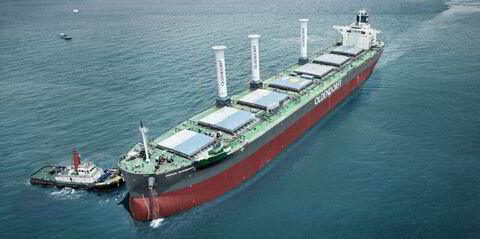The North of England protection and indemnity club has warned that the incoming 2020 fuel regulation could instigate a deluge of charter disputes and is urging owners and charters to be aware of the issues in the hope of avoiding a rush of costly freight demurrage and defence (FD&D) claims.
Tiejha Smyth, deputy director of FD&D at the North of England, says the 2015 switch to low-sulphur fuel in emission-control areas brought a number of charter disputes — but that is likely to be dwarfed by the conflict that could emerge from the 2020 global shift to fuel with 0.5% sulphur content.
“In the past, when the sulphur caps changed in emission-control areas there were disputes between charterers and owners," she says. "But that was not as dramatic as the change to a new global limit. Hopefully now, there will be time for owners and charterers to negotiate before the new limit.”
One of the most pressing issues will be who is responsible to remove all non-compliant fuels from a ship — which applies to all vessels not fitted with a scrubber — by the 1 January 2020 deadline.
Owners and charterers could also dispute who pays the penalties imposed by authorities for using non-compliant fuels.
Another issue that could give rise to dispute will be the owner’s responsibility to buy back fuel from the charterer on redelivery.
“High-sulphur fuel bought from charterers at redelivery might have little value to owners," she says. "The vessel might also have insufficient compliant fuel onboard to reach a bunker port. Conversely, charterers could be out of pocket on redelivery if the charter party requires there to be more low-sulphur fuel onboard at redelivery and the charter party price is significantly lower than the market price.”
Charter parties also specify compliance with marine fuel ISO standards. However, many of the blended fuels expected to come onto the market to meet the 2020 regulation are not recognised by the ISO standard. Also, the definitions in existing charter parties of low and high-sulphur fuel will be out of date by 2020.
Owners and charterers will have to put their heads together on how to share the costs and off-hire time should one of the parties want to fit scrubbers to the vessel.
Smyth says all owners should start planning. “At least they would be entering 2020 with open eyes,” she adds.



